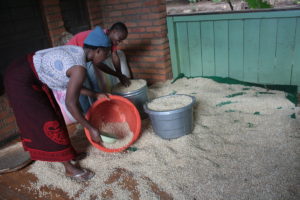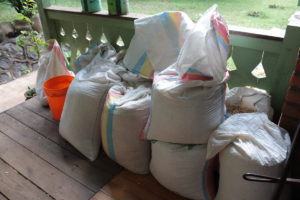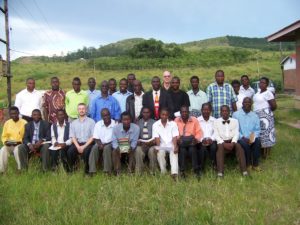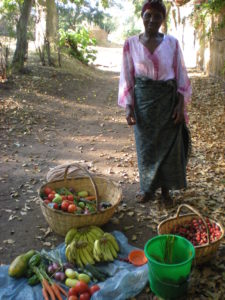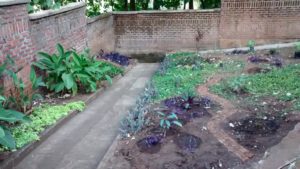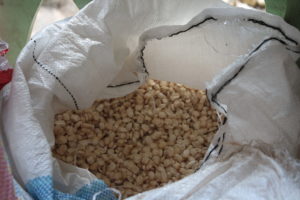
April was harvest time in Malawi!
Good news is that many people around Blantyre have had bumper crops! Enough to feed their families for over a year, maybe even two! This means that prices for maize are low – that is good because…
Bad News is that others living in different areas have had poor to no harvest. So, while our neighbors at EBCoM are amazed and joyful at their harvest, our house worker has nothing to show for the planting and fertilizing she did at her home village farming plot, just over an hour away. She will need to buy maize to feed her family this year. Pray that this good harvest in some areas will keep prices low for those who have none and that all will be fed well.
I visited my neighbor to see part of the process involved in harvesting and storing maize:
After bringing the ears of corn in from the field, the kernels must be removed from the ears, then dried for good storage. Below is the staging area (front porch) where my neighbors are scooping the kernels into bins to take out in the sun to dry.
It tak es about two days to dry, depending on how sunny/cloudy it is. The corn is taken in at night and brought out each morning.
es about two days to dry, depending on how sunny/cloudy it is. The corn is taken in at night and brought out each morning.
As I got do wn to help spread the maize, my friend snapped a picture so you could see me working – but she is the one who has worked many hours to fill these bags with food to feed her family throughout the year and beyond!
wn to help spread the maize, my friend snapped a picture so you could see me working – but she is the one who has worked many hours to fill these bags with food to feed her family throughout the year and beyond!

